Efficient customer service is crucial. AI customer service tools automate tasks and offer instant support, boosting customer experience and cutting costs. AI agents work 24/7, giving timely and accurate responses. This improves customer satisfaction and lets human agents handle complex issues, enhancing their productivity. Implementing AI customer service can change how businesses interact with clients.
Understanding AI Customer Service
Artificial Intelligence (AI) is transforming customer service, making interactions quicker and more personalised. But what exactly is AI in customer service, and how does it work? Let’s dive into these questions to understand the technology better.
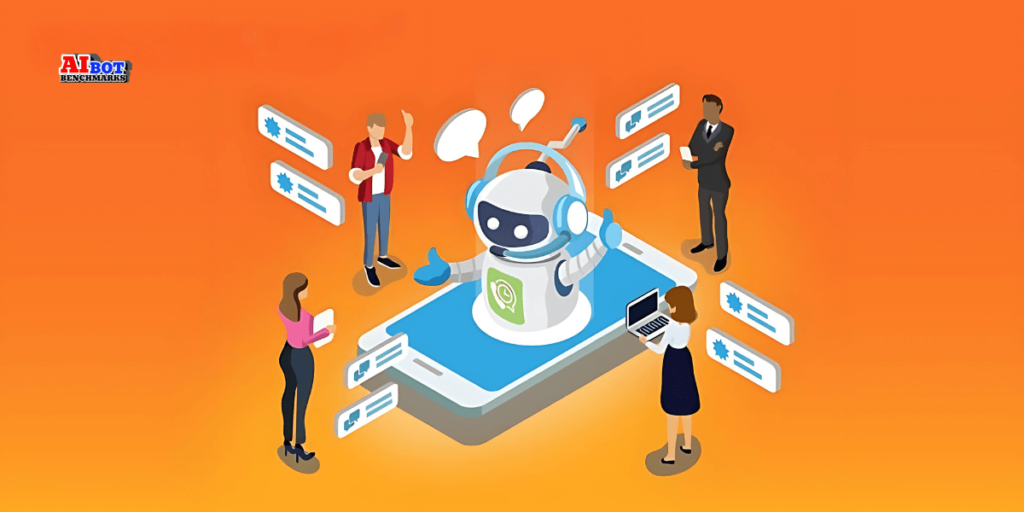
What is AI Customer Service?
AI customer service refers to using intelligent technology to automate, enhance, and streamline support tasks. This can range from simple chatbots answering basic questions to complex systems that manage entire customer interactions. Here are some common examples of AI applications in customer service:
- Chatbots: These AI-powered bots handle customer inquiries in real time. They can answer FAQs, guide users through processes, or direct them to the right human agent if needed. Companies like Zendesk use AI agents to resolve up to 80% of customer interactions, allowing human agents to focus on more complex tasks.
- Virtual Assistants: These are more advanced than chatbots and can handle sophisticated tasks like booking appointments, processing orders, and even troubleshooting issues.
- Sentiment Analysis: AI can assess customer emotions through text or voice analysis, allowing support teams to respond appropriately. This technology can identify when a customer is frustrated and prioritise their issue for faster resolution.
With AI, customer service becomes more efficient, providing quick and accurate solutions, which is essential for maintaining customer satisfaction.

How AI Works in Customer Support
The magic behind AI customer service lies in technologies like Machine Learning (ML) and Natural Language Processing (NLP). But how do these technologies work together to improve customer interactions?
- Machine Learning: ML is a subset of AI that involves training algorithms on large datasets to identify patterns and make predictions. In customer service, ML algorithms can learn from past interactions to improve future responses. For example, Forethought uses ML to automate ticket creation, reducing the workload on human agents.
- Natural Language Processing: NLP enables machines to understand and interpret human language. This technology is crucial for creating conversational AI. Thanks to NLP, AI systems can understand the context of a customer’s query and provide relevant responses. Dialpad explains that NLP works by ingesting data (spoken or written), extracting useful information, and learning from it to make better future interactions.
These technologies work together to create a seamless and efficient customer service experience. For instance, an AI system might use NLP to understand a customer’s complaint about their internet service. It then leverages ML to predict potential solutions based on similar past issues, providing a resolution without human intervention.
By integrating these AI technologies, businesses can handle high volumes of inquiries, personalise interactions, and improve overall customer satisfaction.
AI customer service isn’t just a buzzword; it’s a powerful tool that can make customer interactions smoother and support teams more efficient. With technologies like ML and NLP, AI is set to revolutionise how businesses handle customer support, making it more responsive, personalised, and effective.
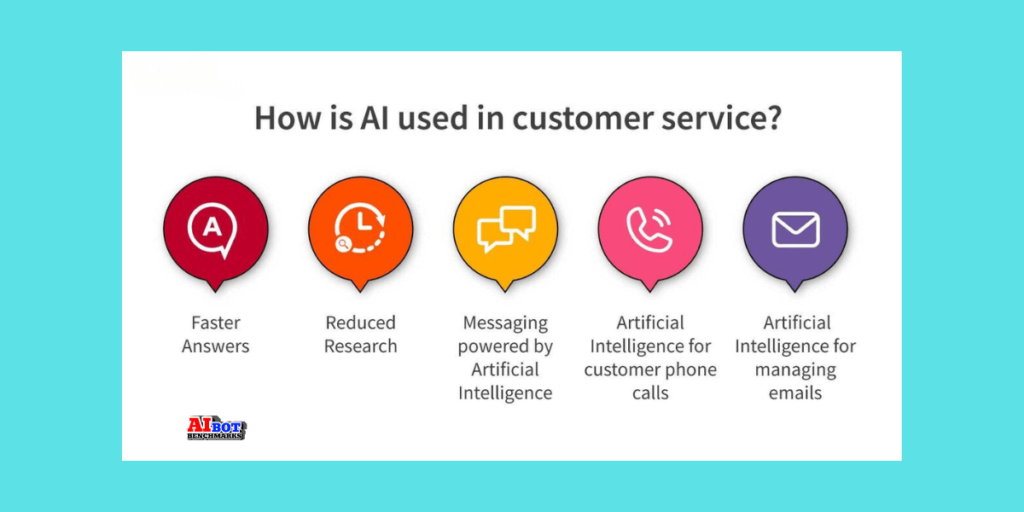
Key Benefits of AI Customer Service
In today’s fast-paced world, businesses strive to provide exceptional customer service. AI tools have emerged as powerful allies in this quest. Here, we explore the significant benefits in AI customer service, focusing on efficiency, cost reduction, and customer satisfaction.
Cost Reduction through Automation
One of the key benefits of AI customer service is cost reduction through automation. AI can handle routine tasks that would otherwise require human intervention.
- Automating Repetitive Tasks: By automating repetitive tasks such as answering common questions or processing simple requests, AI can significantly reduce operational costs. This allows human agents to focus on more complex issues that require a personal touch.
- Smarter Resource Allocation: AI tools optimise resource allocation by efficiently handling mundane tasks. This frees up your team to engage in higher-value activities, resulting in overall cost savings for the business. For instance, AI-driven chatbots can manage multiple inquiries simultaneously, something impossible for a human agent.
By streamlining operations and reducing human workload, companies can see a substantial decrease in their customer service expenses. According to a Sprinklr report, implementing AI reduces average handling time, boosting efficiency.
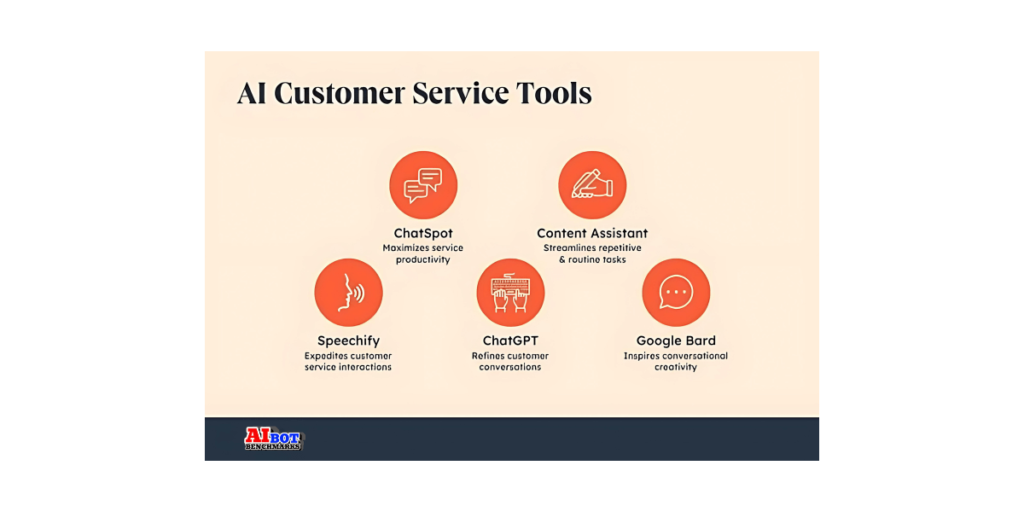
Enhanced Customer Engagement
AI tools enhance customer engagement by personalising interactions, which leads to improved customer loyalty and satisfaction.
- Understanding Customer Needs: AI can analyse customer data to understand individual needs and preferences. This enables the creation of highly personalised responses and recommendations.
- Real-Time Personalisation: By leveraging customer data, AI can offer real-time personalisation during interactions. Whether it’s through chatbots or AI-driven support tools, customers feel valued and understood when their needs are met promptly and accurately.
- Building Loyalty: Personalised interactions foster stronger connections with customers. AI tools ensure that each interaction feels unique and tailored to the customer. This boosts engagement and builds long-term loyalty.
For more information on how AI can personalise customer interactions, check out this Help Scout article.
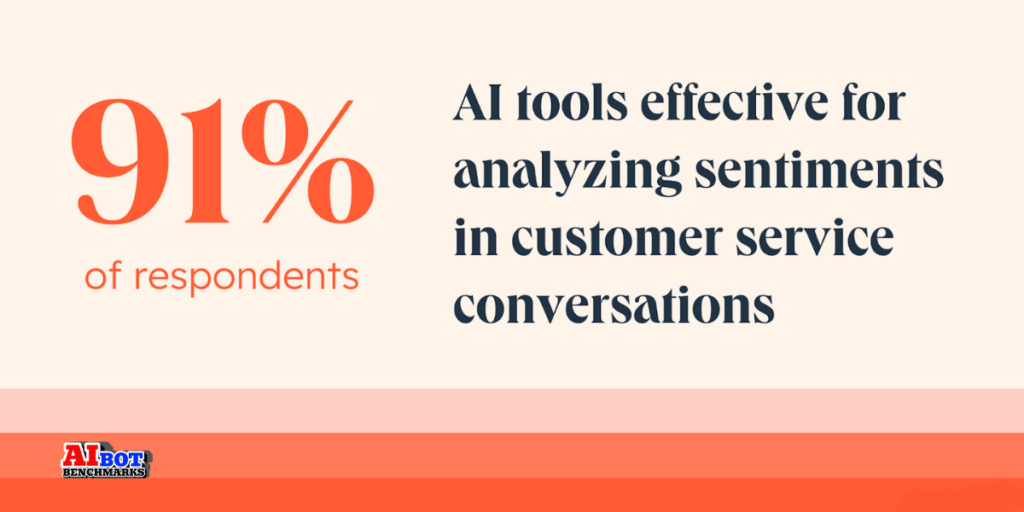
24/7 Availability and Faster Response Times
AI tools provide 24/7 availability, ensuring that customers receive support whenever they need it, without any delay.
- Round-the-Clock Support: Unlike human agents, AI tools such as chatbots can operate continuously, providing support at any time of day or night. This guarantees that customers can get assistance whenever they encounter an issue.
- Immediate Responses: AI-driven chatbots and virtual assistants can respond to inquiries instantly, reducing wait times and improving customer satisfaction. Quick response times are crucial for keeping customers happy and engaged.
- Handling High Volumes: AI tools can manage large volumes of support requests simultaneously. This makes them invaluable during peak times when customer inquiries surge beyond the capacity of human agents.
By offering uninterrupted support and rapid responses, AI tools enhance the overall customer experience. As noted in a Forbes article, leveraging AI for self-service results in faster, more efficient resolution of customer issues.
In summary, incorporating AI tools into customer service operations provides numerous benefits, from reducing costs and enhancing engagement to offering 24/7 support. These advantages underscore the critical role AI plays in shaping the future of customer service.
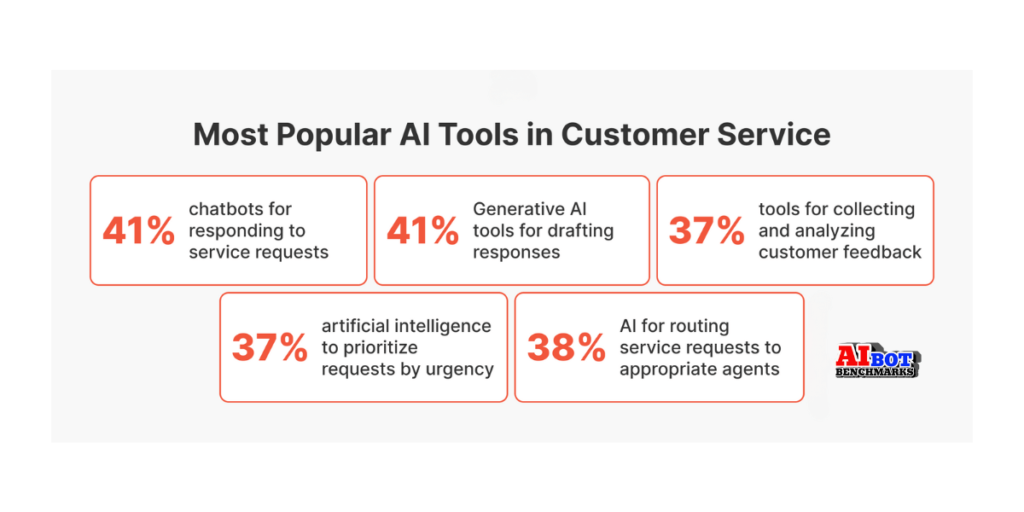
Examples of AI Tools Enhancing Customer Service
Artificial Intelligence (AI) tools have revolutionised customer service, making support faster, efficient, and more personalised. Let’s dive into some specific examples of AI tools that businesses are using to enhance customer service.
Chatbots and Virtual Assistants
Chatbots and virtual assistants are some of the most widely used AI tools in customer service. They handle a variety of customer inquiries, from simple FAQs to more complex issues, which drastically improves service efficiency.
- Handling Inquiries: AI chatbots, like OpenAI’s ChatGPT, can manage thousands of simultaneous conversations. These bots understand and respond to customer questions using natural language processing. This means they can provide accurate information quickly, reducing wait times and improving customer satisfaction.
- 24/7 Support: Unlike human agents, chatbots can operate around the clock. Tools like IBM Watson Assistant offer 24/7 support, ensuring that customers always receive help when they need it. This continuous availability is essential for maintaining customer trust and loyalty.
- Improving Efficiency: Virtual assistants like Apple’s Siri and Amazon’s Alexa have also found their way into customer service. They provide hands-free help and can integrate with other systems to offer a seamless service experience. For example, Amazon Lex is used to build conversational interfaces that can automate customer service tasks, freeing human agents to focus on more complex issues.
By incorporating these tools, companies not only enhance their customer service but also reduce operational costs and improve overall efficiency.
AI-Powered Analytics Tools
AI-powered analytics tools are another powerful asset in the realm of customer service. These tools analyse customer data to derive insights that can help businesses improve service delivery.
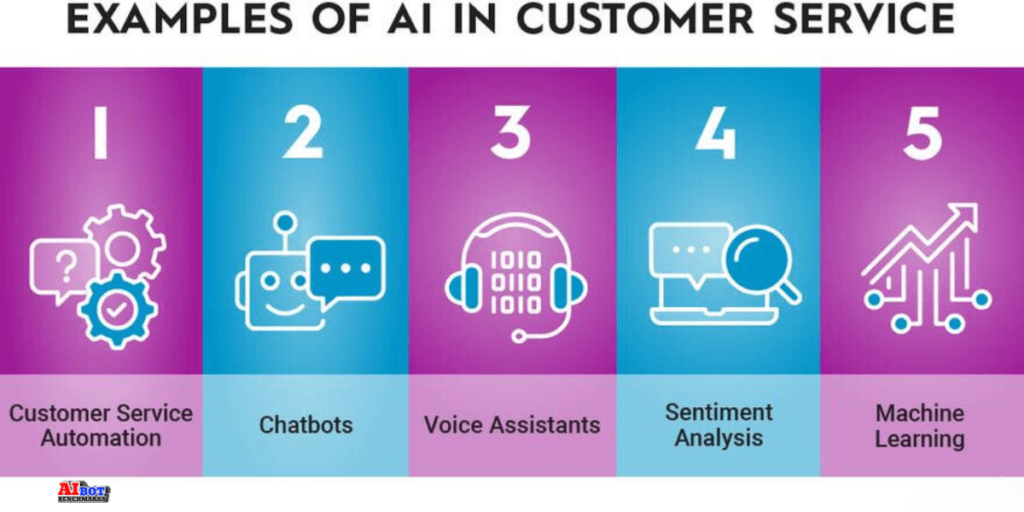
- Customer Insights: Tools such as Sentisum use AI to perform sentiment and text analysis on customer interactions. This helps businesses understand customer feelings and identify common issues, enabling them to address problems proactively.
- Predictive Analytics: AI tools can also predict future customer behaviour. For instance, Sprinklr offers predictive analytics that help businesses anticipate customer needs and tailor their services accordingly. This not only improves customer satisfaction but also helps in retaining customers.
- Operational Optimisation: By examining large volumes of data, AI tools identify patterns and trends that might not be visible to human analysts. According to Forethought, such tools can suggest which areas of customer service should be automated and how to improve workflows, leading to more efficient operations.
Implementing AI-powered analytics tools provides a deeper understanding of customer needs and behaviours, allowing businesses to offer more tailored and effective customer service.
As AI technology continues to evolve, its role in customer service will only grow, making these tools indispensable in providing top-notch support.
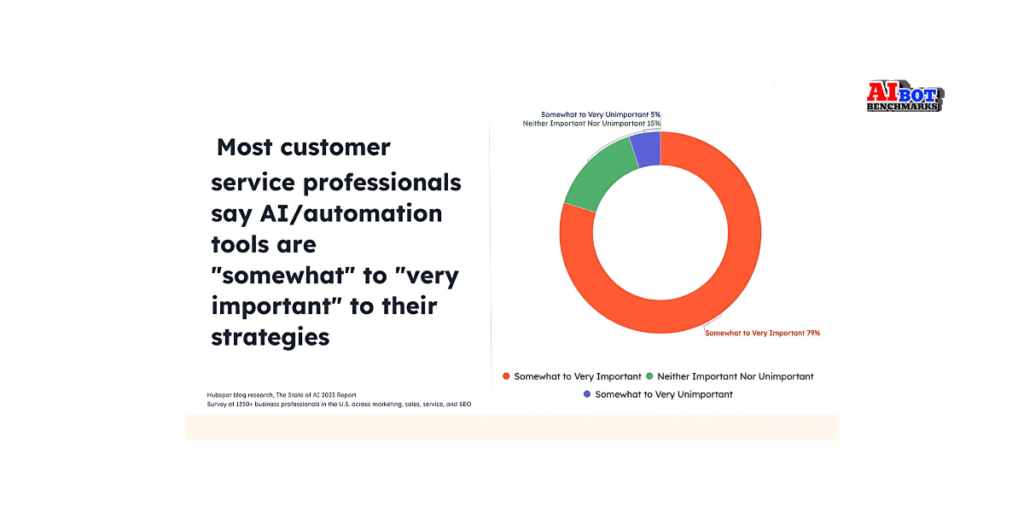
Challenges and Considerations in Implementing AI Customer Service
Implementing AI in customer service offers numerous advantages, but it’s not without its challenges. Companies must navigate various obstacles to ensure that AI tools integrate seamlessly and maintain the human touch that customers value. Here are two critical considerations:
Integration with Existing Systems
Integrating AI tools with legacy systems can be a daunting task. Many businesses have long-standing systems that were not designed with AI in mind. Connecting these systems with modern AI tools can be like trying to fit a square peg into a round hole. There are several hurdles you may encounter:
- Compatibility Issues: Older systems might not be compatible with AI technologies, requiring significant modifications or even complete overhauls.
- Data Migration: Transferring data from legacy systems to AI platforms can be a complex process. Ensuring the accuracy and integrity of data during migration is crucial.
- Training and Calibration: AI tools require massive amounts of data to function effectively. Feeding them the data from old systems and calibrating them to deliver accurate results can be a time-consuming process.
- Costs: The financial investment required to integrate AI with existing systems can be substantial. It includes not just the cost of the AI tools, but also the expense of updating or replacing legacy systems.
For more on the integration challenges, you can read this detailed article.
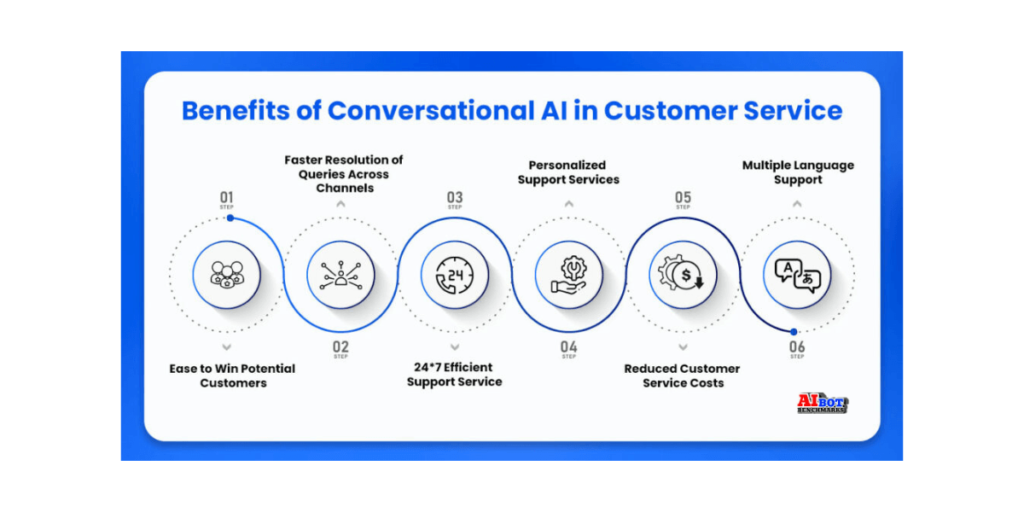
Maintaining Human Touch
Balancing the efficiency of AI with the need for human interaction in customer service is another challenge. While AI tools can handle repetitive tasks quickly and accurately, they often lack the empathy and understanding that human agents provide. Here are a few considerations to keep in mind:
- Customer Expectations: Many customers still prefer the warmth of human interaction, especially for complex issues. Thus, businesses need to strike a balance between automated responses and personal engagement.
- Personalization: AI can assist in creating personalized experiences by analysing customer data, but it still can’t replicate the human touch. Ensuring that human agents are available when needed can make a significant difference.
- Ethical Considerations: Leveraging AI in customer service comes with ethical implications. Ensuring transparency and explaining when and why AI is used can help in maintaining trust.
- Training Human Agents: Training customer service representatives to work alongside AI tools can enhance the overall customer experience. For instance, AI can handle initial interactions or routine tasks while human agents take over when more nuanced understanding is required.
- Feedback Loops: Constantly gathering and analysing feedback from both customers and agents can help in fine-tuning the balance between AI efficiency and human interaction.
For insights on maintaining the human touch, consider checking out this comprehensive guide.
Implementing AI in customer service is not a straightforward journey. It requires thoughtful planning, considerable investments, and a keen understanding of both the technological and human aspects. By addressing these challenges head-on, businesses can harness the power of AI to offer superior customer service without losing the personal touch that keeps customers loyal.
Check out our top ai tool for business Here
Conclusion
AI customer service tools have revolutionised how businesses interact with customers. They offer rapid, tailored support while cutting costs and boosting efficiency.
Embracing AI tools in customer service is no longer optional—it’s necessary. AI enables faster responses, better personalisation, and higher customer satisfaction. Businesses that adopt these technologies will lead the way in customer experience.
Transform your customer service today by integrating AI tools. Let’s drive your business forward with smart, efficient, and personalised support.


